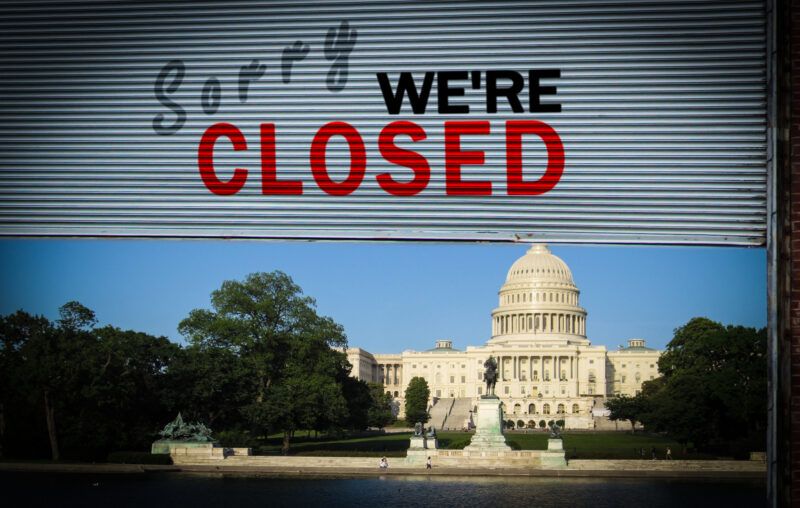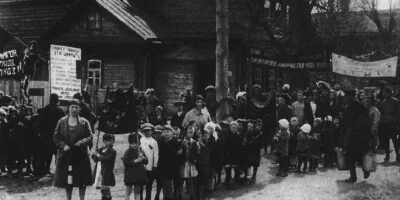Did Market Failures Require A Lockdown Response?

In 1960, Ronald Coase published The Problem of Social Cost, which examined the then-dominant idea that if market failures exist, governments can impose taxes to correct them. This article went on to be one of the most read and most cited (nearly 37,000 citations according to Google Scholar) social science papers of all time.
It is also one of the most misunderstood. Economics and legal scholars have spilled much ink writing about the first four pages of the article, the so-called Coase Theorem. The Coase Theorem is that absent transaction costs (that is, the costs involved in finding a willing trade partner and enforcing the trade), there is no need to impose taxes to correct market failures because mutually beneficial trades exist. People will bargain away the failure. Conversely, only when transaction costs exist do such corrective taxes make sense.
The Coase Theorem is an important part of the paper. But it is not the point of The Problem of Social Cost. It exists, rather, to show an inconsistency in the market-failure literature. Elsewhere in economic theory, early economists like Alfred Marshall and A.C. Pigou discussed transaction costs. But they did not apply the same reasoning to market failures.
Coase sought to correct their oversight before moving onto the main thrust of the paper: we must examine outcomes in the totality on which they occur, not merely the margin on which they occur. In non-technical terms, we need to examine outcomes in the context in which they arise, which include positive transaction costs and existing law.
Many smart people failed to grasp Coase’s point. The story is famous that Coase had to spend all night haranguing members of the University of Chicago economics department to accept his idea. The members of the department include a veritable Who’s Who of great minds who shaped modern economic theory: Milton Friedman, Aaron Director, George Stigler, and many others. Indeed, the misunderstanding of the Problem of Social Cost was so great that Coase devoted two chapters in his 1990 book The Firm, The Market, and The Law to discussing the paper.
But the misunderstanding persists. My colleague at George Mason University, John Nye, discusses in a 2008 paper how Coase’s insights continue to be misapplied. Economists to this day focus on transaction costs rather than context: Some externality exists. So do transaction costs. Therefore, taxes are needed. But Coase’s point is that we need to look at the bargains that people already made before we can even begin the conversation about government regulation.
In Nye’s example, before looking at what an appropriate carbon tax might be, we need to see the Coasian bargains already made: individual and firm choices to reduce their carbon footprint, gas taxes, parking space fees, mass transportation, etc. All of these are “taxes” on carbon emissions that help correct the market failure. But most (if not all) analysis on carbon emissions assume an institutional vacuum, as if there are no existing bargains, no other ways that people can negotiate ways to reduce the harm. Thus, the analysis suggests corrections that actually lead to a worse outcome. This was Coase’s big point and what he spends 40 pages of his 44-page paper discussing.
With the Covid-19 pandemic, we have seen the problem Coase discussed unfurl at rapid speed. Lockdowns, business closures, and even deaths were justified by politicians as necessary to contain the pandemic. Enterprising economists jumped at the opportunity to use the market failure model to justify said lockdowns: governmental actions were necessary to bring social costs in line with social benefits.
But these justifications contained the very problem Coase discussed 60 years ago: they ignored the steps people were already taking to limit the spread. Indeed, as my AIER colleague Phil Magness has documented numerous times, many of the models (such as the Imperial College model) explicitly refused to take people’s behavior into context. In a new working paper, Abigail Devereaux, Nathan Goodman, Roger Koppl, and I document other such failures of expert advisors. Thus, the predictable result occurred: policy was too onerous even by its own standards and has failed to achieve its goals.
Early in the pandemic, Americans voluntarily pulled back their activity. Many people stopped going out. Hotels, airlines, and cruise liners saw waves of cancellations. In Frederick County, Maryland (where I reside), many churches and restaurants self-limited capacity long before official orders came from Annapolis and Washington. And yet, the policies and procedures coming from state and national capitals did not take this voluntary behavior into account. Indeed, the policies often use outdated or poor data, leading to undesirable outcomes.
Even after all these years, why is Coase’s message still misunderstood? As we have seen in this pandemic, misunderstanding the Coasian discussion of market failure has deadly consequences. If the same mistakes are repeated in climate change, the body count could be in the millions. Alas, I have no answer. But economists and policymakers must ask the question: what are people actually doing in the status quo to manage the harm? We may find that what, on its face, appears to be a failure is actually preferable to the reasonable and feasible alternatives.










